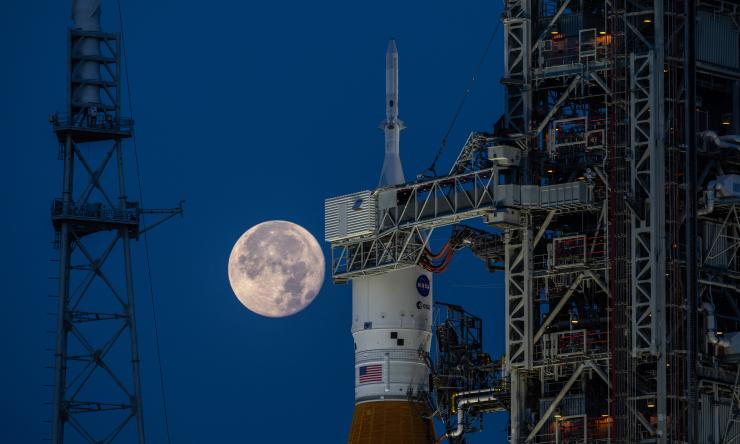TRISH selects two projects to advance human space health research through cellular repair
The Translational Research Institute for Space Health (TRISH) at Baylor College of Medicine, with consortium partners California Institute of Technology and Massachusetts Institute of Technology, announced today its selection of two projects that will protect astronaut health by enhancing pre-existing cellular repair. The awards are part of TRISH’s Biomedical Research Advances for Space Health (BRASH) solicitation.
The NASA-funded institute’s BRASH solicitation invests in emerging science with the potential to reduce risks to human health and performance during future Artemis missions and beyond. Astronauts embarking on future Artemis missions will be exposed to many stressors, such as radiation, that have been shown to cause cellular and tissue damage throughout the body and could negatively impact human health and performance on long-duration deep space missions. The institute sought game-changing solutions through its BRASH solicitation that could reduce multiple crew health risks. The projects selected will explore approaches to enhance endogenous repair and health maintenance processes to ultimately support optimal organ, tissue and cell function for astronauts.
“TRISH is excited for these newly selected approaches exploring the ability to enhance the ability of cells to repair themselves,” said Dr. Jennifer Fogarty, TRISH chief scientific officer and professor of space medicine at Baylor. “TRISH strives to bring forward novel, inventive and disruptive solutions to the risks to human health in space. These projects brought innovative and revolutionary approaches to help safeguard health in the extremes of space through improvements to cellular repair. As with many of TRISH’s projects, there are potential applications to improving the health of people on Earth.”
The selected projects are:
Dr. Marie Migaud, University of South Alabama
Controlling NAD(P) hyper-oxidation to regulate repair and maintenance processes in humans in space
Dr. Marni Boppart, University of Illinois at Urbana-Champaign
Design of an Extracellular Vesicle Approach to Protect Human Health in Space
The awardees are expected to begin their TRISH-funded research in October 2023.
Through a cooperative agreement with NASA, TRISH uses its federal funding to advance human health solutions wherever humans explore. The institute relentlessly pursues and funds research that delivers high-impact scientific and technological solutions to address the most pressing health risks associated with human spaceflight to create a future where all humans can thrive in deep space.
The Institute is a partner of NASA’s Human Research Program and is funded through a cooperative agreement with NASA to Baylor College of Medicine and includes consortium partners the California Institute of Technology and the Massachusetts Institute of Technology. Learn more about the TRISH and sign up for the institute’s monthly newsletter.







 Credit
Credit



